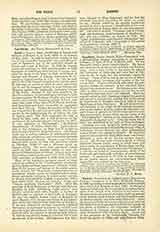

Lapuente (D’APONTE, DE PONTE, DUPONT), LUIS DE, Venerable, b. at Valladolid, November 11, 1554; d. there, February 16, 1624. Having entered the Society of Jesus, he studied under the celebrated Suarez, and professed philosophy at Salamanca. Endowed with exceptional talents for government and the formation of young religious, he was forced by impaired health to retire from offices which he had filled with distinction and general satisfaction. The years that followed were devoted to literary composition. Though not reckoned among Spanish classics, his works are so replete with practical spirituality that they claim for him a place among the most eminent masters of asceticism. Ordained priest in 1580, he became the spiritual director of the celebrated Marina de Escobar, in which office he continued till his death. In 1599 he devoted himself with great charity to the care of the plague-stricken in Villagarcia. Of remarkable innocence of life, he not only avoided all grievous sin, but bound himself by vow, some years before his death, to avoid as far as human weakness permitted even venial faults. Besides a mystical commentary in Latin on the Canticle of Canticles, he wrote in Spanish: “Life of Father Baltasar Alvarez”; “Life of Marina de Escobar”; “Spiritual Directory for Confession, Communion and the Sacrifice of the Mass“; “The Christian Life” (4 vols.), and “Meditations on the Mysteries of Our Holy Faith“, by which he is best known to English readers. This last work has been translated into ten different languages, including Arabic. A few years after his death, the Sacred Congregation of Rites admitted the cause for his beatification and canonization.
HENRY J. SWIFT

